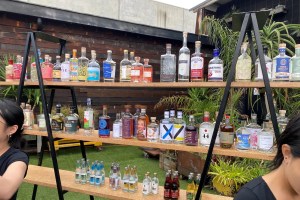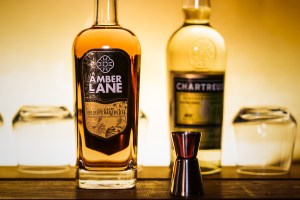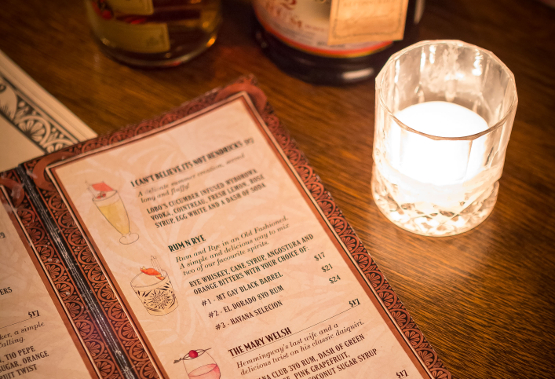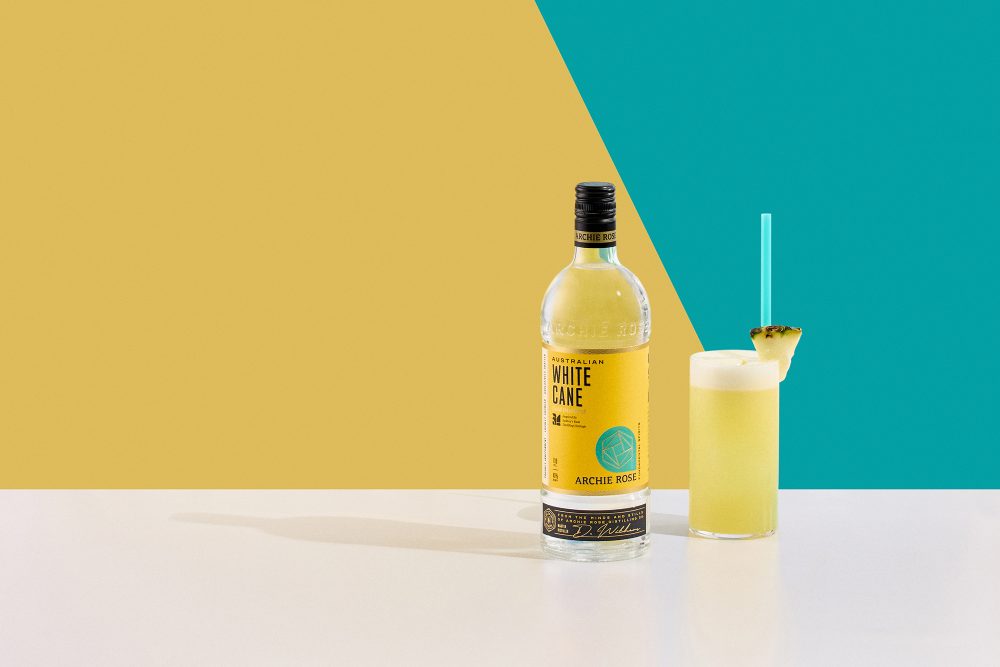Ivy Mix, Author, Owner of Leyenda and Co-Owner of Speed Rack, recently sat down with Bars and Clubs to talk about her colourful career, a passion for Latin American spirits and her mission to champion women in the bartending industry.
Though American bartender Ivy Mix was born and raised in Tunbridge, Vermont, her bartending career began in a very different place.
“I grew up in Vermont, which might be the whitest state in the United States. I grew up in a very small town and everyone was some variation of myself. Then, I realised that there was a world outside of that, and I wanted to get out.
“I went to college in Vermont as well, but we had a winter term where we were supposed to do field work. I was 19, and I didn’t have a field, so I told my mum I just wanted to get out and go anywhere,” Mix said.
Through a family friend, Mix ended up in Guatemala during her first field work term.
“I fell in love with the culture, and I fell in love with the community I was in, which was an integrated expat community. I didn’t speak any Spanish, either, and learning Spanish was revolutionary for me. I really had to think about what I was saying in Spanish, and those conversations were a lot more meaningful,” she said.
This time living in Guatemala was the beginning of Mix’s love with Latin culture and cuisine.
“Everything is vibrant. You have the music, you have reggaeton, salsa, bachata, and then the food. The food is spicy, it’s vivacious, and everything colourful. Especially in Antigua, where I lived, if you walk down the street, the buildings are bright yellow, bright blue, bright red. It was the first place I lived in Latin America and I ended up going back there on and off for four years,” she said.
As well as Guatemala, Mix also spent time in Argentina, Peru, and Mexico, bartending and training horses to fund her travels.
“I just fell in love with Latin American spirits and Latin American food. My mum is a great cook, and I was really drawn in by the vivacity of the flavours.”
Beginning a bartending career
After several years travelling throughout Latin America, Mix eventually moved to New York in 2008.
“I wanted not to fit my entire life into two suitcases, so I decided to settle down. I was originally going to make my way as an artist in Brooklyn, but then the economy collapsed. I was working for free at art galleries and bartending as a way to pay my rent,” she said.
At this point in time, cocktails were seeing a renaissance, and Mix saw an opportunity to work with her favourite Latin American spirits.
“I had worked at a Tequila mezcal bar in Guatemala, and I’d been to Oaxaca, I knew all these places. People were doing wonderful things with beautiful spirits that I already knew that I loved, and that’s how I fell into the cocktail world. Even when I was working in Martini and Manhattan bars, when it was my turn to submit a drink, I was always drawn to rum, pisco, Tequila or mezcal,” Mix said.
Since deciding to make bartending her career, Mix has written a book, Spirits of Latin America: A Celebration of Culture & Cocktails, and opened her own bar, Leyenda, in 2015. Located in the diverse borough of Brooklyn, Leyenda champions spirits and flavours from all over Latin America.
“When we first opened up, we were serving things that most people hadn’t heard about. Even if they could get past that mental hurdle, maybe they couldn’t pronounce it, so we had to be really nice. In 2015, bars still had that speakeasy feel, and weren’t easy to access. I said no, we’re going to have wide open doors, where you can just walk right in and have a spot next to the window,” Mix said.
Leyenda prides itself on employing a broad range of people and creating a safe environment for its staff and customers.
“Since the beginning, we’ve employed diverse staff, and made sure that people are comfortable in our bar. If someone is being hit on, we like to check in and ask how they’re doing, if they’re comfortable,” Mix said.
In addition, Mix said that she wanted Leyenda to be a place where customers felt comfortable to spend time alone.
“We’re not rushing people out. Sometimes I go to a bar and it’s just me. I love going out alone, and being alone around people, and it’s really hard to find a place to do that. Unless it’s our holiday season, we’ll let you sit there for as long as you want. Otherwise, we do a two-hour maximum, so you can sip your drink and read your book for two hours.”
Starting Speed Rack
Alongside her passion for Latin American spirits, Mix co-founded Speed Rack, an international competition aimed at highlighting women and women-aligned bartending talent, with fellow bartender Lynnette Marrero.
Mix herself faced hurdles in her early career, due to the underrepresentation of women in the industry. In one of her first bar roles in New York, Mix worked as a cocktail waitress at a high-end bar. She had initially been turned down from a bartending role because she did not yet have the necessary bartending skills, but when she eventually developed those skills, she continued to have difficulty finding bartending work.
“I had been working there for a while, I knew more about cocktails, so I asked for a job both waitressing and bartending. The answer I got was, ‘No, you’re a cocktail waitress.’ Then, I started going around to all the ‘best bars in the world,’ and it was very rare to see women like me,” Mix said.
When Mix asked owners of these bars why they didn’t employ any women, the response she received was that they just didn’t know any women bartenders.
“We were almost hidden underground,” she said.
Eventually, Mix did begin bartending at lower-level establishments, and was quickly approached by people looking to use her image.
“People would ask, ‘can we film you doing this thing, because we don’t know any other women.’ It was crazy, because I knew other women. I wasn’t the only one around, so why did we have this problem?” she said.
Then, Mix approached her friend Marrero, who had what Mix described as a sorority for female bartenders, and suggested they start a competition aimed at highlighting women bartenders. This led to the foundation of Speed Rack in 2011. After the first competition’s success, Mix and Marrero looked to add another element, and decided to make a contribution to charity. Mix and Marrero chose breast cancer as Speed Rack’s cause, as it disproportionately affects women, and since its foundation, Speed Rack has raised more than US$1.5m for breast cancer charities.
Over the years, Speed Rack has changed to better accommodate the bartenders it is seeking to uplift.
“Speed Rack has definitely changed over the last 13 years. The political landscape is different. When #MeToo happened and this whole new wave of feminism happened, that really affected Speed Rack. It changed what we were about and what it meant,” Mix said.
In addition, Mix said that Speed Rack’s definition of womanhood and femininity is much broader than it was in 2011.
“It was a spectrum when we started, but it wasn’t a spectrum that many people were aware of. Our terminology and the way we talk about Speed Rack is much more inclusive than it ever was.
“That has given Speed Rack almost a whole new mission, because it’s so much bigger,” she said.
Similar to many hospitality industry ventures, Speed Rack took a break during COVID, which was an uncertain time for the competition.
“I honestly thought Speed Rack was going to end after COVID. I thought, I’ve spent the last decade of my life traveling around the world and not making much money, but I’m happy for it,” Mix said.
“But the first time we did it again after COVID, I realised that we’re not going anywhere. This is really important work. We have to keep on doing it.”
The future of Speed Rack
When asked about the next steps for Speed Rack, Mix said that she wants to allow the next generation to take on leadership roles in the competition.
“I made my career off of Speed Rack. It was accidental, but it’s what happened. I want to give that opportunity to somebody else as well, someone who’s young, who’s hungry, who wants to lead the way and change it.
“I want Speed Rack to expand, but we need help to uplift it. We’re trying to find those outlets right now, and work out how do we make this bigger? How do we raise more money for breast cancer? How do we bring more awareness to our community?” she said.
Despite the changes coming in the competition’s future, Mix said that Speed Rack’s central goal remains the same – to champion women in the bartending industry and highlight their talent.
“At the end of the day, it has always been about what you do behind the bar. If you have more diversity there, it’s going to be a better for your bar, and it’s going to be better for everyone.”






























